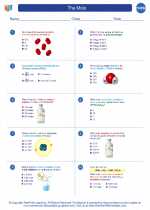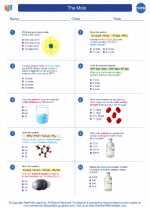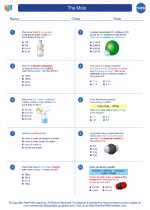Adaptation in Chemistry
Adaptation in chemistry refers to the process of modifying a chemical reaction, process, or system in order to achieve specific goals or to accommodate changes in conditions. This can involve altering reaction conditions, such as temperature, pressure, or concentration, as well as modifying the chemical components or catalysts involved in a reaction.
Factors that Influence Adaptation in Chemistry
- Reaction Kinetics: The rates at which chemical reactions occur can be adjusted through changes in temperature, pressure, and the use of catalysts.
- Equilibrium Shift: Modifying reaction conditions can alter the position of equilibrium in a chemical reaction, leading to changes in the concentrations of reactants and products.
- Chemical Composition: Adapting the composition of a chemical system by adding or removing reactants, products, or catalysts can influence the course of a reaction.
- Physical State: Changing the physical state of reactants or products, such as by using a different solvent or adjusting the phase of a substance, can impact reaction outcomes.
- Environmental Factors: External factors, such as light or the presence of impurities, can necessitate adaptation of chemical processes to achieve desired results.
Examples of Adaptation in Chemistry
Some common examples of adaptation in chemistry include:
- Adjusting the temperature and pressure in a chemical reaction to optimize yield and selectivity.
- Modifying the concentration of reactants to control the rate of a reaction.
- Using different catalysts or reaction conditions to minimize unwanted side reactions.
- Adapting the pH of a solution to favor the formation of a specific product.
- Changing the solvent to improve the solubility and reactivity of a given substance.
Study Guide for Understanding Adaptation in Chemistry
To gain a comprehensive understanding of adaptation in chemistry, consider the following study guide:
- Reaction Kinetics: Familiarize yourself with the concepts of reaction rates, rate laws, and the impact of temperature and catalysts on reaction rates.
- Equilibrium and Le Chatelier's Principle: Study how changes in temperature, pressure, and concentration affect the position of equilibrium in chemical reactions.
- Chemical Equations and Stoichiometry: Learn how to balance chemical equations and calculate stoichiometric quantities to understand the composition of chemical systems.
- Solubility and Solubility Rules: Explore the factors that influence solubility and how they can be adapted to control the outcomes of precipitation reactions.
- Catalysis: Understand the role of catalysts in altering reaction pathways and improving reaction efficiency.
- Environmental Effects: Consider the impact of environmental factors, such as light and impurities, on chemical reactions and how they may require adaptation.
By mastering these topics, you will develop a strong foundation in understanding and applying adaptation in the context of chemical processes and reactions.
.◂Chemistry Worksheets and Study Guides High School. The Mole
The resources above cover the following skills:
Chemistry II
Reactions
Use mathematical representations to analyze the proportion and quantity of particles in solution.
Equilibrium
Analyze and interpret data to explain the change in concentration of products and reactants, and the stable state achieved under reversible conditions.



